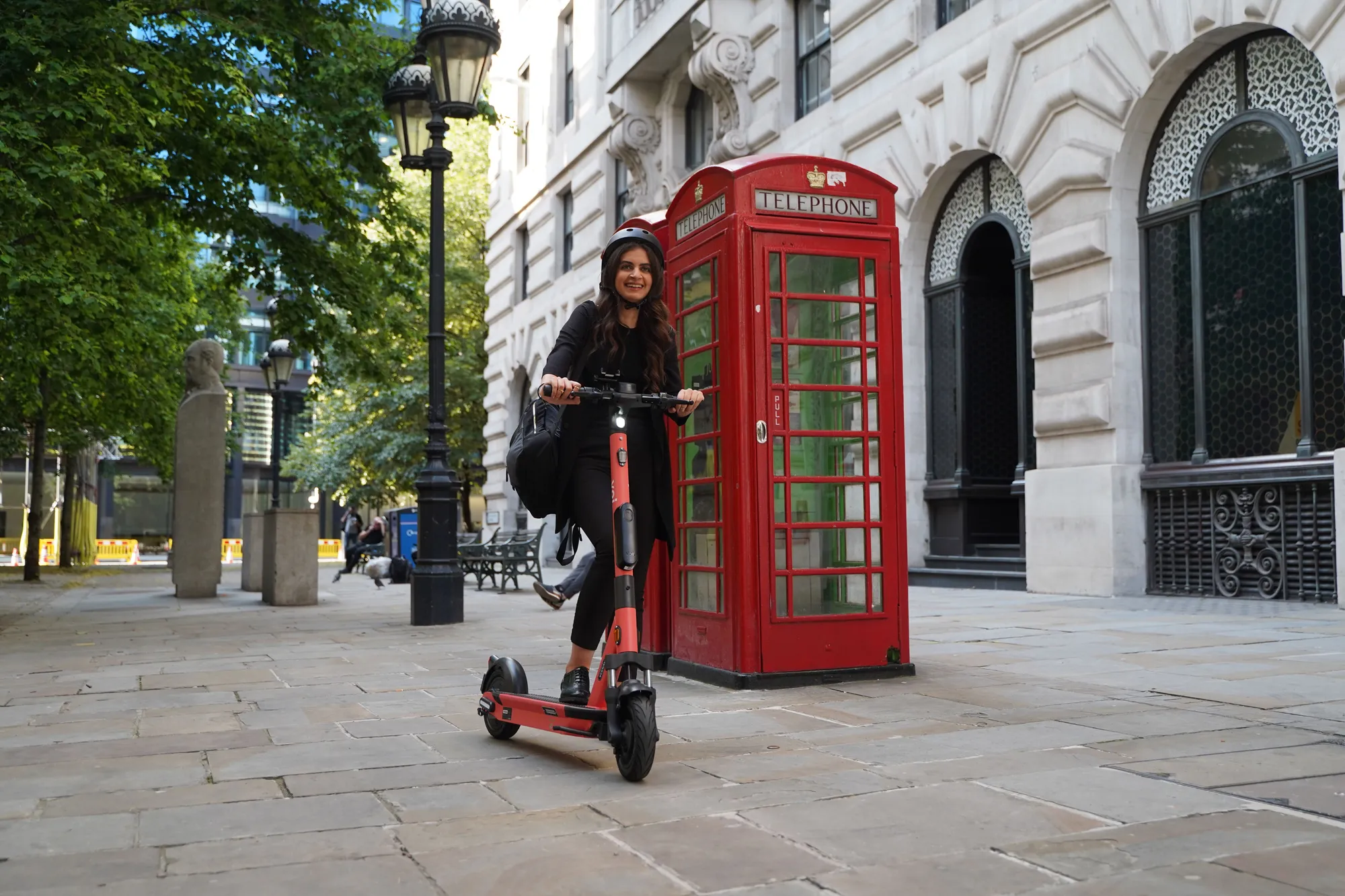Shared e-scooters are a popular part of the micromobility landscape in many countries around the world.
In the UK they have only been lawful on public land in Government rental trials. These have seen many millions of rides take place since they were started from summer 2020.
The UK Government has now announced its desire to create a new powered light vehicle class, which can provide the route for e-scooters and potentially other light e-mobility options to be legalised.
CoMoUK will be working closely on this as we liaise with public authorities across the country, with UK Government and with our e-scooter operator members.




Shared e-scooter schemes are growing rapidly in popularity in the UK and brings multiple co-benefits with them. They provide an inclusive form of low carbon travel and support multi modal travel.
Research by CoMoUK in 2024, has found that 7.4 million short commutes in urban areas that are currently made by car could feasibly be made by shared e-bikes or e-scooters instead. If this change took place, around 1 million tonnes of greenhouse gas emissions could be saved each year, equivalent to 1% of the emissions currently resulting from domestic UK travel.
Shared e-scooters are a popular part of the micromobility landscape in many countries around the world. In the UK they have only been lawful on public land in Government rental trials. These have seen many millions of rides take place since they were started from summer 2020. You can learn more in our statistics below.
We have now published the UK's first ever Shared Micromobility Report, which you can also see below. Having analysed data from UK bike share users and operators since 2016; now we have for the first time reported on shared bikes and e-scooters in a combined report.
We see continued growth in the sector, and crucial relationships between shared micromobility and active travel, public transport and private car use.
CoMoUK continues to make the case to Government for long-term legalisation of e-scooters, as is overwhelmingly the case around the world.

This is CoMoUK's first ever report on e-scooters, drawing together operator data and wide stakeholder expertise from all the shared e-scooter trials across England.
It includes clear recommendations and gives us as an organisation a platform from which to build further evidence and insight in the future.

This is a selected range of external reports that we have found useful and interesting. CoMoUK has embarked on its own research into the UK experience to date with the e-scooter trials, which is due to be published before the end of 2022.
Links open in a new tab.